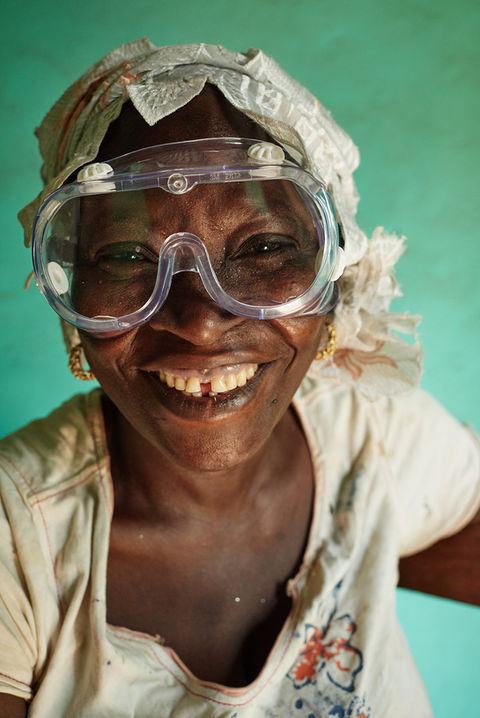EMPOWERING WOMEN EMPOWERS EVERYONE

Educating women and girls has been ranked one of the most effective strategies to mitigate climate change, and to eliminate poverty and build peace in the developing world. Real solutions to scale sustainable development must be inclusive and rooted in local needs, resources, and culture. It must include women. It must give voice to communities long marginalized by colonial models.
A complicated set of environmental, economic, and ethical issues impeding sustainable global development is represented in Guinea, where this project begins. Like much of Africa, Guinea has abundant natural resources and a rich tradition in tie dyeing and textile arts. Despite these resources, more than 55% of its people live at or below the poverty line and 76% of girls are married by the age of eighteen in Guinea, and gender violence is high. This limits access to education, to learn a marketable trade, or to pursue entrepreneurial endeavors, ultimately limiting sustainable development for the nation. Education across all facets of sustainability—social, environmental, and economic—is essential, at home and abroad.
“One of the great opportunities to build relevant, accessible models for sustainable development lies in fashion. Fast fashion is one of the biggest perpetrators of environmental and ethical violations. Slow fashion, by contrast, emphasizes craftsmanship, fair wages, and the use of fewer resources to make quality materials that last a long time. When empowerment of women and artisans is incorporated into building environmentally and socially conscious supply chains, the slow movement can offer a fast track to sustainability at scale. Education, rooted in gender equality and supported by partnerships is critical to reversing climate change.”
Theanne Schiros, "Fair Play: Sustainability at Scale," Riposte, Part VII (November 2019), p. 179.



































